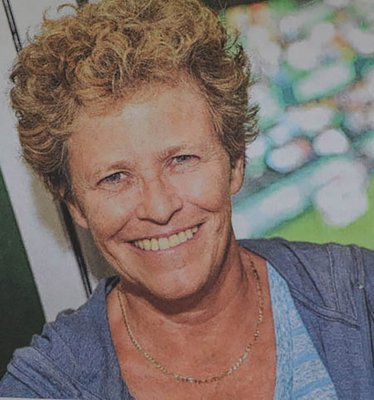Internalised Homophobia and Shame – Time to Talk?

photo by Angela Roma for Pexels
Most of us have heard of Gay Pride. But how many of us have considered the issue of “gay shame”? And how is it related to internalised homophobia?
Writer Katrina Allen reports.
What is internalised homophobia?
A 1998 study on gay and bisexual men in New York city described it as–
“The gay person’s direction of negative social attitudes toward the self. Leading to a devaluation of the self and resultant internal conflicts and poor self-regard.”
In other words, internalised homophobia happens when we absorb social prejudice, leading to negative feelings about our sexual identity or orientation.
Internalised homophobia and shame
And internalised homophobia is highly connected to shame. As British sociologist Ken Plumer explains this in his book Telling Sexual Stories: Power, Change, and Social Worlds. He says–
“The awareness of stigma that surrounds homosexuality leads the experience to become an extremely negative one. Shame and secrecy, silence and self-awareness, a strong sense of differentness—and of peculiarity—pervades the consciousness.”
How it affects your mental health
The above New York study found that two thirds of the men participating experienced internalised homophobia. And this included those who had accepted their sexual orientation and had come out. The study also found that “IH” made someone more vulnerable to mental health problems as intimacy and relating issues.
photo by Karolina Grabowski for Pexels
A more recent study including both men and women looked at whether internalised homophobia predicted depression and anxiety symptoms. It also looked at suicide risk and substance abuse. It concluded that IH raised the risk of depression by 18 per cent, and the risk of anxiety by 13 per cent. But that it didn’t raise the risk of suicide unless depression was already present.
The highest period of risk for suicidal thinking or attempts was connected to coming out to one’s immediate family, when feeling of shame could run high.
Has the IH situation evolved?
We now live in a world where social media affords a public way to call out discrimination. It can unite people in celebrating their identities.
But the older LGBT+ community grew up in a more discriminatory era. This is particularly true for men who were sexually active prior to 1967, when male same-sex relationships were still illegal. In fact the World Health Organisation (WHO) only declassified homosexuality from its list of mental disorders as late as 1992.
And let’s not forget that the Western World is not indicative of attitudes worldwide. There are still those who come from a country where being LGBT+ is illegal, sometimes to the point of capital punishment.
The weight of gay shame – my story
As a 66 year-old lesbian, I remember experiencing a huge amount of shame and fear when I realised, in my twenties, that I was not what is known as ‘heteronormative’. In my teens, I frequently overheard usage of abusive terminology such as “bent”, “queer”, or “lezza”. This led me to realise that being LGBT+ was, on the whole, socially unacceptable.
 I finally plucked up the courage to get into a relationship with a woman when in my thirties. But we were filled with embarrassment and stress, and lacked the ability to adequately deal with the situation. We found it impossible to come out to others.
I finally plucked up the courage to get into a relationship with a woman when in my thirties. But we were filled with embarrassment and stress, and lacked the ability to adequately deal with the situation. We found it impossible to come out to others.
In fact, I made sure not to use the word “we”. This meant I was constantly self-censoring, and found it hard to get too close to other people.
Now, I feel more relaxed about the situation. But I’m still careful about who I come out to and when to choose the right time.
I see the troubled look in the eyes of those who are shocked by my “admission” and my sense of shame comes flooding back.
And what most people don’t consider is the fact that every time I meet a new person, or find myself in a new social setting? I have to work out whether it feels safe to come out. And then how to broach the subject in a manner which doesn’t cause discomfort or embarrassment.
Then, about 15 years ago, I met a New Zealand woman. And for an extensive period, we lived in her country.
It felt like a clean slate, and gave me the opportunity to be true to myself. Rather than compartmentalising my life, I decided to be completely open to everyone we met.
Initially, it was hard. But it was, on the whole, a hugely positive experience. Now back in London, I have carried that approach through, and it’s been a great relief to stop hiding my true identity. I still face occasional discrimination, when my shame can quickly resurface. But I have managed, for the most part, to deal with it.
Dealing with LGBTQ+ shame
So how can you deal with your feelings of shame or fear as a result of being part of the LGBT+ community?
1.Use a self-help journal.

Photos by Ece Ak for Pexels
Keeping a journal is a helpful method to reduce stress and could help anxiety around internalised homophobia.
A study on expressive writing, where you write about your feelings and life stressors, found that it helped with anxiety. The only exception being if you had an ongoing issue with expressing emotions.
Recording your feelings and moods can also lead to more self-awareness. Using a gratitude list by writing down daily five things you are grateful for can enhance your mood. And don’t forget to record a list of your achievements, which encourages a sense of self-worth.
2. Recognise that you are not alone.
Consider joining an LGBT+ meetup group where you will come across like-minded people and can openly discuss issues with shame and internalised homophobia without feeling judged.
Mind charity also has a great list of LGBTQ+ charities that can be a useful resource in sourcing support groups.
3. Use dating sites if it suits you.
With the advent of on-line dating apps and internet dating sites, many LGBT+ bars and clubs have closed down. This has made it harder to meet others. On-line dating has become the go to alternative, and there are alternatives for the older crowd out there, too.
4. Helplines.
There are a number of helplines geared towards the LGBT+ community. The charity LGBT Health provides a list of the ones in the UK here.
5. If you come out, do so at your own pace.
It’s a vulnerable time, and as discussed above, particularly vulnerable if you already suffer from depression. It’s important to go at your own pace and to decide when you are ready. Make sure you have proper positive support around you, and do not be pressured by how your peers deal with this issue.
Can therapy help with internalised homophobia and shame?
Absolutely, and there are talk therapists who specialise in working with LGBTQ+ related issues. And take comfort in knowing that therapy is confidential. It can be a valuable first step to overcoming that sense of shame and isolation.
Need support on coming out, feeling good being you, or shame issues? We offer therapy for LGBTQ+ issues in central London offices. Or use our online booking platform now to source UK-wide registered therapists and online counselling.
Still have a question about internalised homophobia and gay shame? Or want to share your experience with other readers? Post below. Note that all comments are modified and we do not allow harassment of any kind.
 Katrina Allen is a freelance writer covering topics such as LGBT+ issues and racket sports. A former Junior Wimbledon player and World no 1 at Real Tennis, she has also written various pieces on her experiences working with refugees as both a language teacher and medical translator. Find her on Twitter.
Katrina Allen is a freelance writer covering topics such as LGBT+ issues and racket sports. A former Junior Wimbledon player and World no 1 at Real Tennis, she has also written various pieces on her experiences working with refugees as both a language teacher and medical translator. Find her on Twitter.





